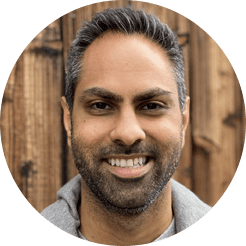Success comes to those who create their own future by envisioning what they want and then doing it. If this statement resonates with you and you haven’t yet set personal development goals to find success, now is definitely the time.
Setting goals in an area of your life you want to improve can help you develop clarity, improve your mental health, and acquire new skills.
Personal development goals are a specific type of goal to help you improve your skills, character, wellbeing, or productivity.
- Improve time management
- Become a more active listener
- Learn a new skill
- Develop better emotional intelligence
- Get better at conflict resolution
- Become an early riser
- Network more effectively
- Improve public speaking
- Respond better to feedback
- Develop a growth mindset
- Manage stress effectively
- Create positive habits such as reading, meditation, exercise, etc.
How to set personal development goals the right way
At some point, you’ve probably set goals only for them to fizzle out and die. We’ve all been there and kicked ourselves for not following through.
We know goals are good for us, but why are they so hard to stick to? The problem with setting goals is that most people do it all wrong.
The number one mistake people make is that their goals are too vague. Goals need to be specific and actionable.
Here are four simple steps to setting and sticking to your goals.
Create a clear vision
The first step is to create a clear vision of what you want to achieve and more importantly, why. If your “why” is not strong enough, you will struggle to stick to anything.
Spend time considering your why. Is this goal something you want or something you think you should do?
You need to want the goal enough to put in the work. So, give it some thought, what do you want to achieve, and be specific!
One of the best goal-setting systems is the SMART method. This stands for Specific, Measurable, Attainable, Relevant, and Time-based.
In other words, your goals need to be specific. You need a way to measure your progress. They need to be realistic and relevant to your life, and they need some kind of time frame. Without these elements, goals tend to wither and die.
Develop a plan of action
Setting goals is the easy part. Anyone can say “I want to travel more” but there’s a lot more to it than that. Without a plan, how will you know what to do next?
Instead, ask yourself: What can I do today, tomorrow, each week/month to achieve this goal?
Let’s look back on our previous example. Say you want to earn more money. What does this goal look like in six months? How much money do you want to be earning by that point? Be specific.
Now think about what you can do to do to achieve that goal. Break it down into tiny steps.
For example, you could speak with your boss and arrange a salary review in six months. You could start gathering evidence of your achievements or do some research on average salaries in your field.
Alternatively, you might want to look for another job. In this case, your plan of action could be to apply for five jobs a week.
Track your progress
One way people stumble on their personal development journey is because they don’t track their progress. Progress may feel non-existent, vague, or even pointless if you have no concept of where you are in relation to your goals.
Make sure to track your progress to see how close/far you are from where you want to be. There may still be a long way ahead of you. But regularly tracking your progress gives you a clearer indication of whether you’re on the right track.

Ways to track your progress include noting everything down in a spreadsheet, getting a dedicated app, or even having an accountability partner or mentor to check in with.
Review and reflect
On a similar note, it’s an important component to not just track your progress but also review and reflect on your plan and goals as well.
Along your personal development journey, you could completely change your mind, priorities, or methods. If so, your plans should reflect that.
Perhaps you need to reevaluate your timeline. Maybe your methods are just not working and you need to switch your approach. Without taking the time to review and reflect, you could remain unfocused or even keep chasing a goal that’s no longer relevant.
Set yourself regular check-in days to review all your tracked progress and also revisit your original goals.
Read the heck out of topics that will encourage growth
Want to get into shape? Get your hands on material on the market by the best in the industry. We’re talking books, books, and more books. Whether you’re ordering a hardcover off Amazon or simply signing up for the audio version with Audible, you need to consume books like crazy. Books are a cheap investment into professional development material that could be the catalyst to the next biggest thing. A book by Jay Abrahams inspired a business idea and Ramit was able to generate $100,000 in one month!
Ramit has a famous rule, the Ramit Book-Buying Rule that states if a book even looks remotely interesting, buy it. You can fuss about the dollars and cents later, as that book might just contain a life or career-changing idea.
Sign up for a free course
Sites such as Skillshare and Udemy are filled to the brim with useful courses. Some of them you don’t even have to pay a cent for! (Excuse us while we recover from the hellish student loan debt we had to pay off before eLlearning was a thing).
Invest in yourself
Sure the free stuff is great, but sometimes, professional learning requires a bit more than a free course. If you’re finding it hard to justify the decision, it’s important to invest in yourself. The right investment in a course could lead to better-paying clients, a better job, a salary increase, or even a business idea that might explode into the next biggest thing. If there is a chance that it will get you closer to your rich life, it’s worth considering.
Find a mentor
Sometimes you buy a book and the book is just so great that it leads to a mentorship program worth $15,000. According to Ramit, he would easily pay ten times that amount for the course he did with Jay Abraham.
A mentor allows you a glimpse into the daily habits and routines of those who are consistently great at what they do. Those who have reached the top of their game might not share all the steps they take and the habits they form to reach their goals.
A mentor bridges that gap to greatness and is also better equipped to provide technical assistance with real-life issues as they pop up. For instance, if you’re looking at gaining muscle to enter a higher weight class in your boxing career, a mentor who has already been through the same, and has worked with others just like you.
Participate in personal or professional development workshops
One of the best ways to stay on track with your professional development is by joining a community of like-minded people. Working through course material, staying on track with assignments, and creating study groups are far easier when you’re learning with others. It creates a sense of accountability.
How invisible scripts hold us back from achieving our goals
Learn to take control of your finances and spend your money GUILT-FREE with our free Ultimate Guide To Personal Finance below:
Sticking to your goals can feel impossible. One reason for this is because of something called invisible scripts.
Invisible scripts control our lives and most of the time, we don’t even know it. They’re unconscious internal monologues that hold us back, stopping us from being successful and happy.
They’re not just in our head though. They are typically a product of wider problems in society, cultural norms, your upbringing, or the economy.
For example, “I can’t earn a raise in this economy” is a limiting belief and a script that many people tell themselves.
While achieving a raise might be difficult (the economy isn’t exactly in great shape right now) it is achievable.
The first step is to recognize these invisible scripts exist. That alone can go a long way in helping you kick these limiting beliefs to the curb. After that, you need a bulletproof plan to achieve your goals.
That’s where personal development goals come in. Working on yourself is the ultimate way to defeat these pesky invisible scripts holding you back. For example, if it’s a raise you’re after, a goal like “learn to negotiate” would be a good start; or when applying for a new job, “perfect the Briefcase Technique” would be an excellent short-term goal to work on.
Any kind of personal development is a fantastic goal to set yourself. It’s a key part of personal and professional growth that will lead to a richer, more meaningful life. So, make sure you’re setting your goals the right way.
Learn to take control of your finances and spend your money GUILT-FREE with our free Ultimate Guide To Personal Finance below:
By setting personal development goals, you dedicate yourself to self-improvement and maximizing your potential. Goals like these can give us a much clearer sense of direction and help improve the quality of our lives.
